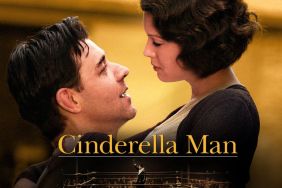Cast:
Mark Wahlberg as ‘Irish’ Mickey Ward
Christian Bale as Dicky Eklund
Amy Adams as Charlene
Melissa Leo as Alice
Steven Barkhimer as Richard Farrell
Dendrie Taylor as Gail ‘Red Dog’ Eckland Carney
Jack McGee as George Ward
Jenna Lamia as Sherri Ward
Bianca Hunter as Cathy ‘Pork’ Eklund
Chanty Sok as Karen
Erica McDermott as Cindy ‘Tar’ Ecklund
Sean Patrick Doherty as Jimmy
Sugar Ray Leonard as Himself
Caitlin Dwyer as Kasie Ward
Salvatore Santone as Young Micky Ward
Melissa McMeekin as Little Alice Eklund
Jackson Nicoll as Little Dicky
Anthony Molinari as Shea Neary
Kate B. O’Brien as Phyllis ‘Beaver’ Ecklund
Sue Costello as Becky
Billy “V” Vigeant as Kevin Slattery
Directed by David O. Russell
Story:
Boxer Micky Ward (Mark Wahlberg) is considered the pride of Lowell, Massachusetts, a hometown boy made good, but in reality, Micky is a 31-year-old “stepping stone,” a boxer used to help others move up the ranks, one who constantly has his troubled brother Dicky (Christian Bale) and clinging mother (Melissa Leo) at his side. He meets a barmaid named Charlene (Amy Addams) who convinces Micky that the only way forward in his career is to get rid of his family baggage.
Analysis:
The boxing drama has been a cinematic mainstay for decades with “Rocky” and “Raging Bull” and “Million Dollar Baby” being three of the benchmarks. This passion project from Mark Wahlberg reunites him with David O. Russell for the third time while telling the story of “Irish” Micky Ward, a Massachusetts boxer trying to make one last stab at success. From the very first minutes of the film, it’s easy to deduce the movie is just as much about his troubled brother Dicky Eklund, played by Christian Bale. As the film begins, he’s hamming it up with his brother for a camera crew that follows the duo around town making a documentary Dicky claims is about his comeback, but we find out later is something very different which doesn’t put Dicky in the light he was expecting. It’s not about his comeback but about his drug problem, which is also bringing Mickey down.
This isn’t your typical boxing movie, because it’s not just about Mickey’s rise through the ranks on his way to a comeback, but it’s also a strong dramatic story about brotherhood and how Mickey tries to remain true to his family while at the same time realizing, they are holding him back. Through the brilliant script by Scott Silver, you can almost feel executive producer (and the film’s previous director) Darren Aronofsky’s fingerprint on some scenes, because the film has a similar tone and feel to “The Wrestler.” One can understand why it didn’t make sense for him to make this movie his follow-up.
As much one would expect this to be a film that shines the spotlight singularly on Wahlberg–he’s very good but not doing anything particularly revelatory–it’s more of a showcase for the talent around him. That’s particularly true when it comes to Bale, who embodies a character so different from anything we’ve seen from the actor before. It isn’t just about the accent or the amount of weight he lost to emulate Dicky’s wiry frame, but all of his mannerisms and facial expressions that makes you realize that the actor has indeed transformed into his character. Bale’s real moment to shine comes after Dicky is put in jail and has to deal with the withdrawal of being separated from his supply of crack. Those who already know Mickey Ward’s story and that of his brother may not be as shocked or surprised by some of the developments and revelations as the story progresses, but it’s handled quite effectively.
Most boxing movies tend to be thick with testosterone, dominated by guys, just like the sport of boxing, so the fact there are two dominant females having such a huge impact on everything that happens makes “The Fighter” quite refreshing. First there’s Mickey and Dicky’s mother played by Melissa Leo with big hair and an attitude to match, keeping Mickey under the reins of her domineering personality, convincing him to take on matches he can’t possibly win, and being far more forgiving and sympathetic towards Dicky despite knowing his foibles. Sporting a suitable Mass. accent, Amy Adams embodies the type of woman who can make any man do anything they want. Mickey is torn between the two but ultimately goes with the woman he loves, a decision that leads to an explosive dramatic scene later in the film.
This is easily David O. Russell’s best film since “Three Kings,” showing him as a director capable of creating a transparency in storytelling rather than dominating it with flashy filmmaking. He focuses instead on capturing the performances of this solid cast and creating a sense of realism in every scene. Even so, there are few movies that capture rural Massachusetts as well as “The Fighter” except maybe Ben Affleck’s two films, and that’s just as much a testament to Russell as it is to Wahlberg. There’s a surprising amount of humor in the film often coming from the very unique personalities inherent in the denizens of Lowell and Micky’s immediate family, his respective sisters and half-sisters who bring an added humor as a Greek chorus.
That said, the film’s biggest Achilles Heel is the wonky musical selections that accompany Micky’s training and matches, which often do very little to enhance the action.
The Bottom Line:
Dramatic to its core but never maudlin, “The Fighter” is David O. Russell’s strongest film in years. As much as it may seem like just another terrific inspirational story about a boxer making an impossible comeback, the movie’s heart and soul lies in Christian Bale’s performance and what his character brings to every one of his scenes.










